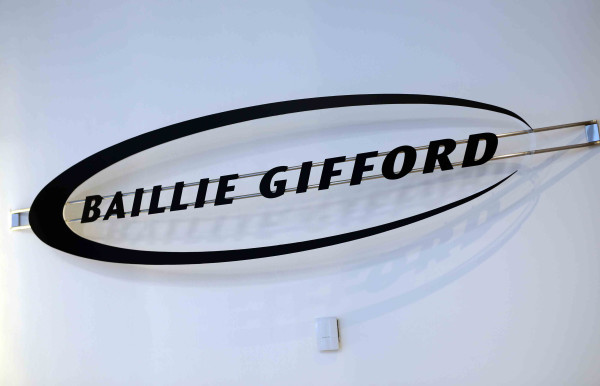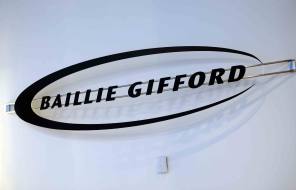

The Edinburgh-based fund house's assets under management and advice were £231bn on June 30, compared with £352bn at the same time last year.
A spokesperson for Baillie Gifford said this was mostly down to investment performance, as UK retail outflows for the period were just £1.5bn.
Baillie Gifford has long-been associated with the growth style of investing and for emphasising a long-term view, but growth investing has been out of favour over the past few months as rising interest rates and inflation.
"There has been a slight bounce back after the end of June figures were published," the spokesperson said, with assets rising to £254bn on August 5.
“As we said last year when reporting very strong one year performance numbers, we would ask shareholders to judge performance over periods of five years or more,” Tom Burnet, the chairperson of its US Growth Trust, said in a results update this morning (August 9).
Mick Gilligan, who runs the managed portfolio service at Killik and Co, said the firm's approach required patience.
"Recent weakness has reminded investors of these 'humbling periods of underperformance'," he said, quoting Baillie Gifford's own words.
Speaking about the downturn in 2002-23, Gilligan said: “Those that remained patient and took a long-term view were rewarded with the subsequent recovery but many investors probably bailed out…the conclusion for me is to stick with these strategies but ensure your position sizing is appropriate for any further turbulence that may lie ahead.”
US Growth Trust
Baillie Gifford's US Growth Trust severely underperformed the sector last year.
The trust reported an underperformance of 20 percentage points in the year to May 31, slumping 35.3 per cent, with its share price crashing even further by 45.5 per cent in the period.
This is in comparison to the S&P 500 Index which returned 12.2 per cent.
The index is the trust’s closest comparator, but the trust does invest in both quoted and unquoted US stocks, so it is not a direct comparison.
Burnet said it was easier to be a long-term investor when things are going well, and although it can be cathartic to “do something”, decision-making under stress increases the chance of errors.
“It is critical that we maintain a long-term perspective during challenging times like these," he said.
"The last few years have been particularly volatile and challenging, but this has not undermined our confidence in the philosophy and process, or in our underlying holdings.”
Turbulent times
Baillie Gifford has suffered hugely from the sharp decline in the growth stocks it favours, such as technology. These holdings soared in the years prior to 2022, driving Baillie Gifford’s assets under management to surge from £22bn at the end of 2000 to £326bn at the end of 2020, according to the Financial Times.
In May, the firm announced its flagship fund, the Scottish Mortgage Investment Trust, saw its performance crash below its benchmark last year amid the "spectre" of inflation, according to its chairperson.

Baillie Gifford’s £13bn flagship trust posted a net asset value loss of 13.1 per cent in the year to March 31, compared with the FTSE All-World Index which returned 12.8 per cent.
Chairperson Fiona McBain said the "spectre" of higher inflation and rising interest rates, combined with concerns over Chinese regulation and Russia’s invasion of Ukraine spreading fear in markets, had "significantly reduced" the valuations of many growth companies.
The trust’s share price crashed to a low of 48 per cent in the year to June 16, though it has regained 34.4 per cent since then.
Baillie Gifford’s pivot towards China has also come under fire, as government interventions in the economy and concerns about the country’s economic growth as it exits the pandemic caused a steep underperformance of the Chinese equity market.
Monks Trust
Baillie Gifford also announced today the merger of its Monks Investment Trust with the assets of The Independent Investment Trust.
The deal will add £259mn in net asset value to the £2.5bn Monks trust if it is approved by shareholders, and the investment policy and objective of the Monks trust will not change, meaning it will continue to be managed by Baillie Gifford’s global alpha team.
In a statement today, the board of the Monks trust said the deal would allow shareholders to benefit from lower costs and higher liquidity due to the trust's increase in scale.
The inflow of cash into the Monks portfolio was also highlighted as a potential benefit for shareholders, as well as a “ready-assembled collection” of UK growth stocks, which the managers have assessed for “upside and portfolio fit”.
The Independent Investment Trust was launched in 2000, and has two former Baillie Gifford partners on its board of directors - chairman Douglas McDougall and managing director Max Ward.
sally.hickey@ft.com



